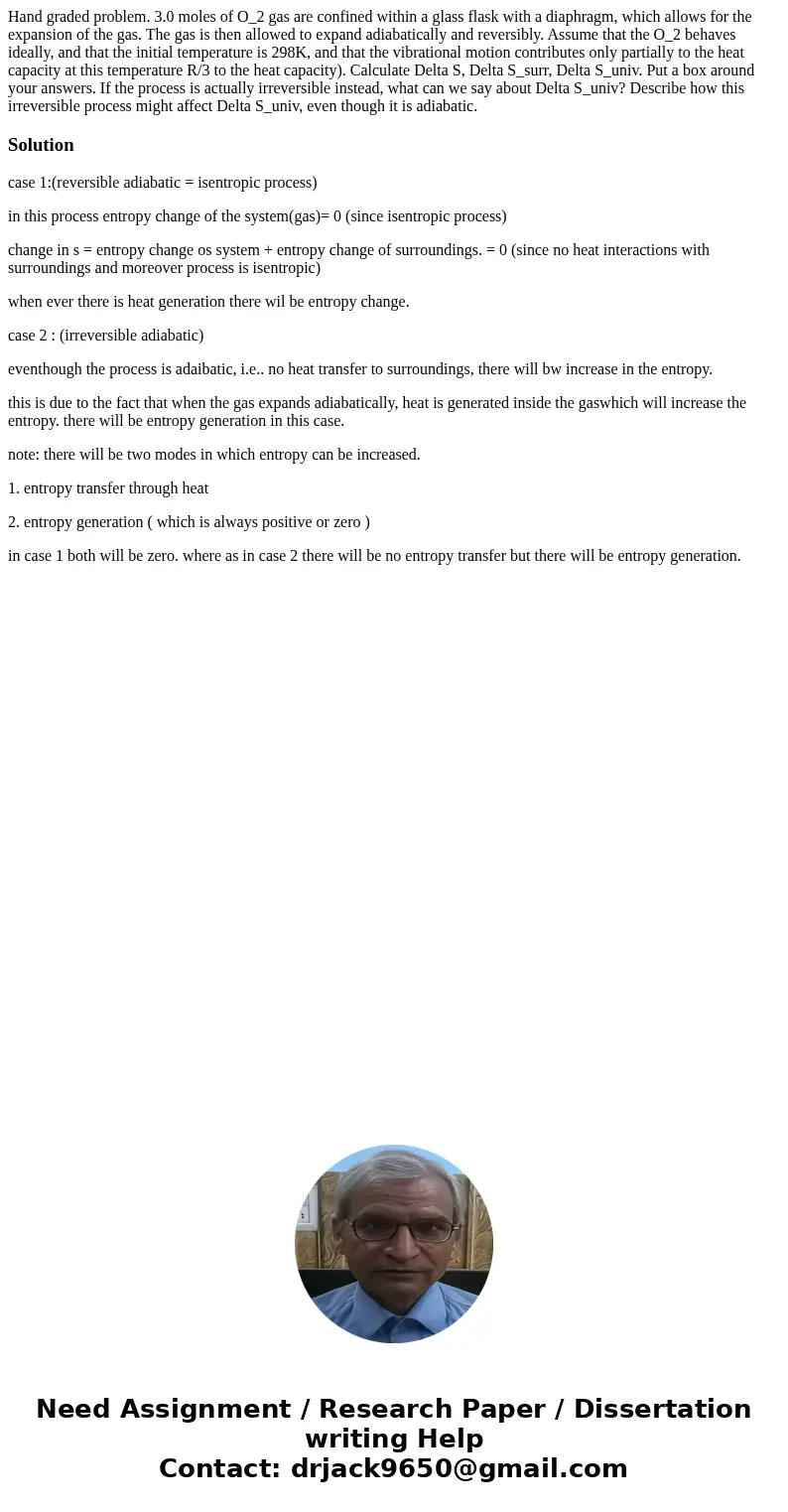Hand graded problem 30 moles of O2 gas are confined within a
Solution
case 1:(reversible adiabatic = isentropic process)
in this process entropy change of the system(gas)= 0 (since isentropic process)
change in s = entropy change os system + entropy change of surroundings. = 0 (since no heat interactions with surroundings and moreover process is isentropic)
when ever there is heat generation there wil be entropy change.
case 2 : (irreversible adiabatic)
eventhough the process is adaibatic, i.e.. no heat transfer to surroundings, there will bw increase in the entropy.
this is due to the fact that when the gas expands adiabatically, heat is generated inside the gaswhich will increase the entropy. there will be entropy generation in this case.
note: there will be two modes in which entropy can be increased.
1. entropy transfer through heat
2. entropy generation ( which is always positive or zero )
in case 1 both will be zero. where as in case 2 there will be no entropy transfer but there will be entropy generation.

 Homework Sourse
Homework Sourse